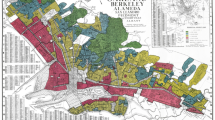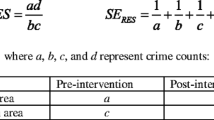Summary
Black Americans face increased health risks from environmental and occupational exposures when compared with white Americans, but they also face increased risks for more immediate health problems such as HIV infection/AIDS, alcohol and drug abuse, violence, and infant mortality. A survey of more than 1,000 black public health and black political leaders solicited opinions on the relative importance of 1) environmental health and 2) occupational health and safety compared with other public health problems faced by the black community. The survey also determined opinions about the degree to which specific health problems are amenable to change for black Americans and who (or what agency) should spearhead efforts aimed at specific public health objectives.
Responding black leaders felt environmental health and occupational health and safety goals were somewhat important for black Americans, but among the most difficult of all public health objectives to meet. Those who felt that the above objectives were very important identified the federal govemment as the primarily responsible party for seeing that the objectives are met.
Similar content being viewed by others
References
Bullard, R. 1990.Dumping on Dixie: Race, Class and Environmental Quality. Westview Press, Boulder, CO, USA.
Drane, J. W. 1991. Imputing nonresponses to mail-back questionnaires.American Journal of Epidemiology,134, 908–912.
Greenberg, M. R., Popper, F. J. and West B. M. 1990. The TOADS: a new urban American epidemic.Urban Affairs Quarterly,25, 435–454.
Greenberg, M. R., Popper, F. J. and West B. M. 1991. The fiscal pit and the federalist pendulum: explaining differences between US States in protecting health and the environment.The Environmentalist,11, 95–104.
National Center for Health Statistics. 1990.Vital Statistics of the United States, 1987, Vol.2,Mortality. US Government Printing Office, Washington, DC, USA.
National Conference of Black Mayors. 1991.1991 Mayors Roster. Atlanta, GA, USA.
National Black Caucus of State Legislators. 1991.Directory of African-American State Legislators as of March 31 1991. Washington, DC, USA.
Needleman, H. L. 1991. Childhood lead poisoning: a disease for the history texts.American Journal of Public Health,81, 685–687.
NRW Associates. 1991.National Black Health Leadership Directory 1990–91. Washington, DC, USA.
Schneider, D., Greenberg, M. R. and West, B. 1992.Public Health and Public Health Services: The Connecticut-New Jersey-New York Tri-State Region. Center for Urban Policy Research, New Brunswick, NJ, USA.
US Department of Health, Education and Welfare, Public Health Service. 1991.Healthy People 2000: National Health Promotion and Disease Prevention Objectives. US Government Printing Office, Washington, DC, USA.
US Department of Health and Human Services. 1985.Report of the Secretary's Task Force on Black and Minority Health. US Department of Health and Human Services, Washington, DC, USA.
Wagener, D. K. and Winn, D. W. 1991. Injuries in working populations: black-white differences.American Journal of Public Health,81, 1408–1414.
Author information
Authors and Affiliations
Additional information
Dr Dona Schneider is Assistant Professor of Public Health at Rutgers University. She teaches epidemiology and biostatistics for the New Jersey Graduate Program in Public Health at the University of Medicine and Dentistry of New Jersey, and holds memberships in both the Environmental and Occupational Health Sciences Institute and the National Institute for Environmental and Health Sciences. Her research spans the health problems of children and minorities. She regularly reviews books for theEnvironmentalist.
Rights and permissions
About this article
Cite this article
Schneider, D. Low priorities for black american leaders: Environmental and occupational health. Environmentalist 13, 41–46 (1993). https://doi.org/10.1007/BF01905502
Issue Date:
DOI: https://doi.org/10.1007/BF01905502




